Facts about Avocado

Avocado farmers in California lost hundreds of millions of dollars in 2006 due to a temperature drop.

The avocado may be an example of an "evolutionary anachronism," a fruit adapted for ecological relationship with now-extinct large mammals (such as the giant ground sloth or the Gomphothere).

Avocado trees also need well aerated soils, ideally more than one meter deep.
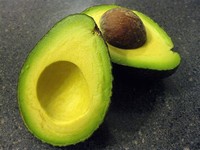
The name "avocado pear" is sometimes used in English, as are "alligator pear" and "butter pear."

Avocado is popular in chicken dishes and as a spread on toast, served with salt and pepper.
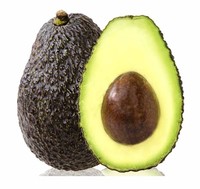
All Hass avocado trees are related to a single "mother tree" that was bought as a seedling by a mail carrier named Rudolph Hass.

Once picked, avocados ripen in a few days at room temperature (faster if stored with other fruits such as bananas, because of the influence of ethylene gas).

Avocados are much more expensive in the USA than in other countries, due to the fact that those consumed in the USA are grown almost exclusively in California and Florida.

The avocado fruit is poisonous to birds in some cases, so on a practical level feeding the fruit to birds should be avoided (Government of Canada 2006; Clipsham 2007).
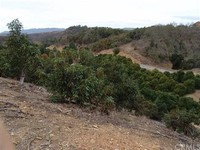
Approximately 59,000 acres (approximately 24,000 hectares) of avocados are grown in California.

The avocado, P. americana, is the best-known member of the genus Persea, which is comprised of about 150 species of evergreen trees.

After the North American Free Trade Agreement (NAFTA) treaty was signed in 1991, Mexico tried exporting avocados to the United States.

The Nahuatl ahuacatl can be compounded with other words, as in ahuacamolli, meaning "avocado soup or sauce," from which the Mexican Spanish word guacamole derives.

The avocado, P. americana, grows to 20 meters (65 feet), with alternately arranged, evergreen leaves, 12–25 centimeters long.
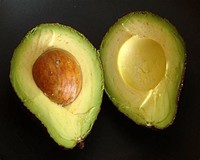
A whole medium avocado contains approximately 55 percent of the United States FDA's recommended daily amount of fat, though they are high in monounsaturated fat.

Another argument is that the lower prices generated by the Mexican and Chilean imports would increase the popularity of avocados outside of California, thereby assuaging the loss of profits due to the new competition.

Ninety-five percent of United States avocado production is located in California, and 80 percent occurs in San Diego County.

The avocado's hypothesized ecological partners have disappeared, and the avocado plant has not had time to evolve an alternative seed dispersal technique, aside from human cultivation (Barlow 2000).
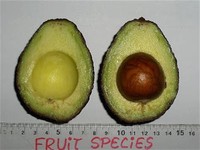
The common names "avocado pear" or "alligator pear" for the fruit are due to its shape and rough green skin.

The avocado (Persea americana) is a tree native to Mexico and Central America, classified in the flowering plant family Lauraceae and widely cultivated in subtropical regions for its large, edible fruit.

To prevent this, lime or lemon juice can be added to avocados after they are peeled.

A fatty triol (fatty alcohol) with one double bond, avocadene (16-heptadecene-1,2,4-triol), is found in avocado and has been tested for anti-bacterial and anti-inflammatory properties.
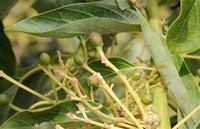
Avocados that fall off the tree ripen on the ground, and, depending on the amount of oil they contain, their taste and texture may vary greatly.

Other avocado cultivars include Bacon, Fuerte, Gwen, Pinkerton, Reed, and Zutano.

Avocado flesh has also been used by some Native American tribes in the southwestern United States in the mixing and application of adobe.

The Chilean version of Caesar salad contains large slices of mature avocado.

After a season with a low yield, due to factors such as cold (which the avocado does not tolerate well), the trees tend to produce abundantly the next season.

The avocado tree does not tolerate freezing temperatures, and can be grown only in subtropical or tropical climates.

Growers had to sponsor a public relations campaign to debunk the avocado's unsavory reputation before they eventually became popular.

Premium supermarkets sell pre-ripened avocados treated with synthetic ethylene to hasten the ripening process (Mindfully.org 2007).

The word "avocado" comes from the Spanish word aguacate, which derives in turn from the Aztec, Nahuatl word, ahuacatl, meaning "testicle," because of its shape.

The avocado is very popular in vegetarian cuisine, making an excellent substitute for meats in sandwiches and salads because of its high fat content.

Fallbrook, California, claims the title of "Avocado Capital of the World" and hosts an annual Avocado Festival.

Previously, avocados had a long-standing stigma as a sexual stimulant and were not purchased or consumed by any person wishing to preserve a chaste image.
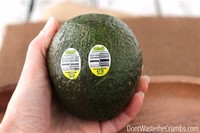
Contrary to the conventional wisdom, avocado trees cannot sustain frost.

Avocado is also thought to promote physical beauty and is used in cosmetics to this day.

The avocado was introduced to the U.S. state of California in the nineteenth century, and has become an extremely successful cash crop.

Hass avocado fruits have a dark, rippled skin and rich, creamy flesh.

The avocado, P. americana, grows to 20 meters (65 feet), with alternately arranged, evergreen leaves, 12–25 centimeters long.

The avocado is a climateric fruit, which means that it matures on the tree but ripens off the tree.

In Brazil and Vietnam, avocados are considered sweet fruits, so are frequently used for milk-shakes and occasionally added to ice cream and other desserts.

Avocado leaves contain a toxic fatty acid derivative known as persin, which in sufficient quantity can cause equine colic and with lack of veterinary treatment—death.

A ripe avocado will yield to a gentle pressure when held in the palm of the hand and squeezed.

The avocado is unusual in that the timing of the male and female phases differs among cultivars.

Avocados are part of the laurel family, Lauraceae, which comprises a group of flowering plants included in the order Laurales.

The avocado, P. americana, is the best-known member of the genus Persea, which is comprised of about 150 species of evergreen trees.

Legumes are members of the Fabaceae (also called Leguminosae) family of flowering plants.

The Mexican government then proposed to sell avocados only to the northeastern U.S. in the winter (fruit flies cannot withstand extreme cold).

The avocado fruit also has one large central seed, 3 to 5 centimeters in diameter.







